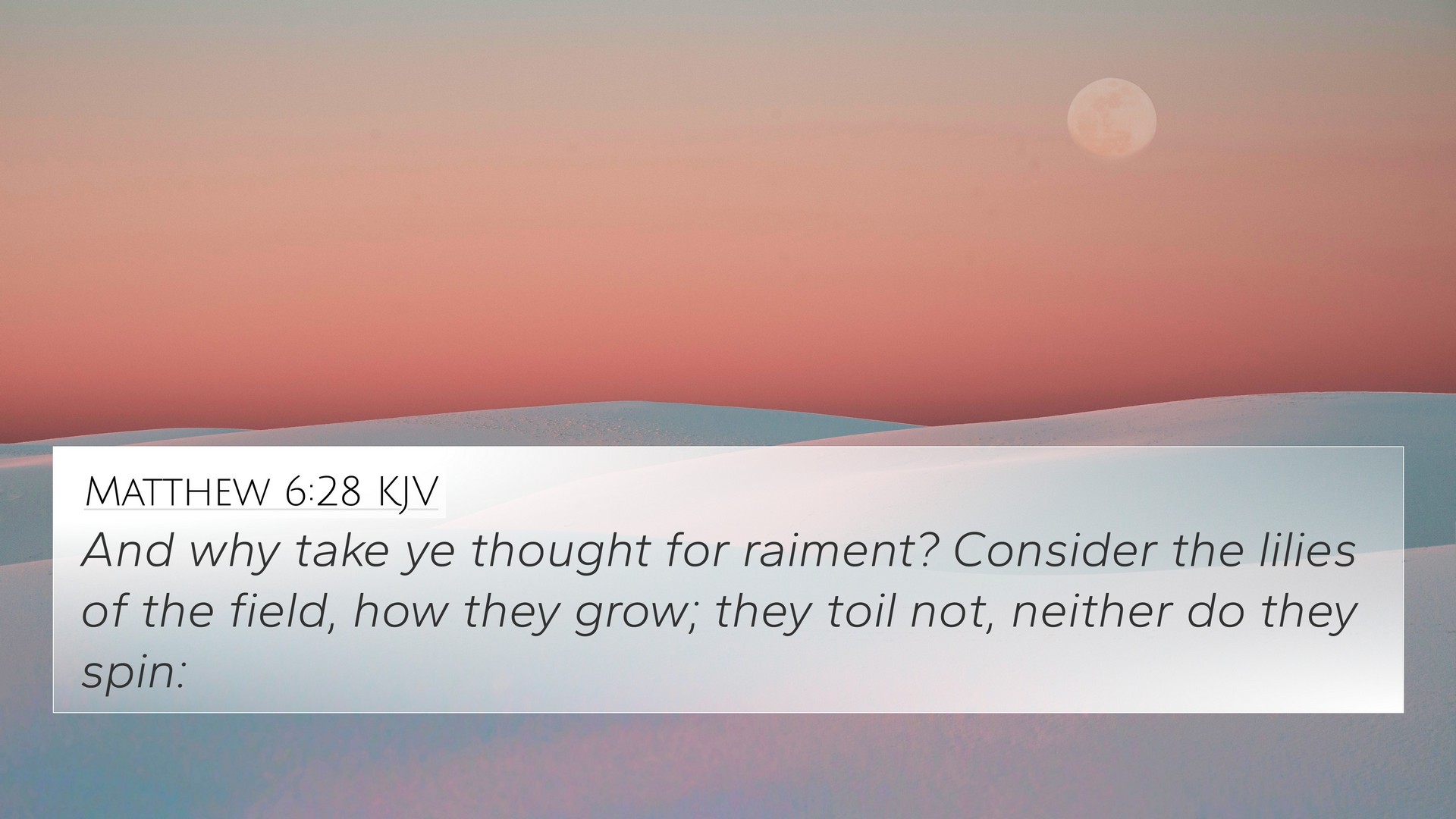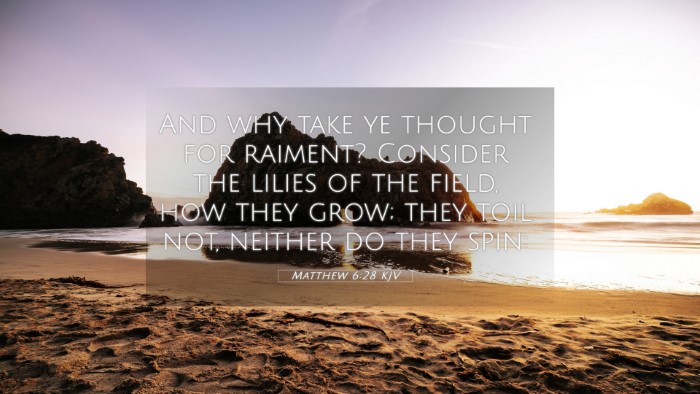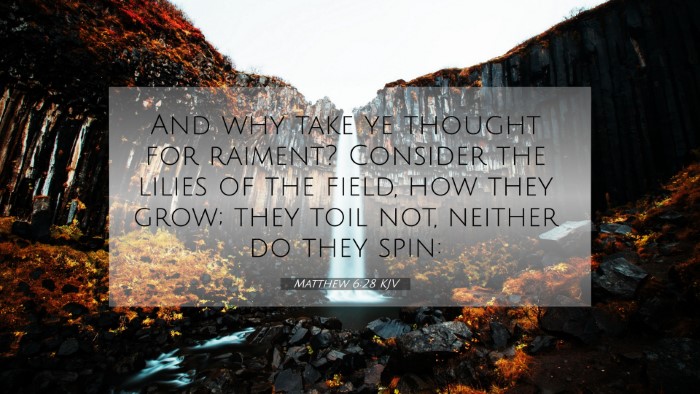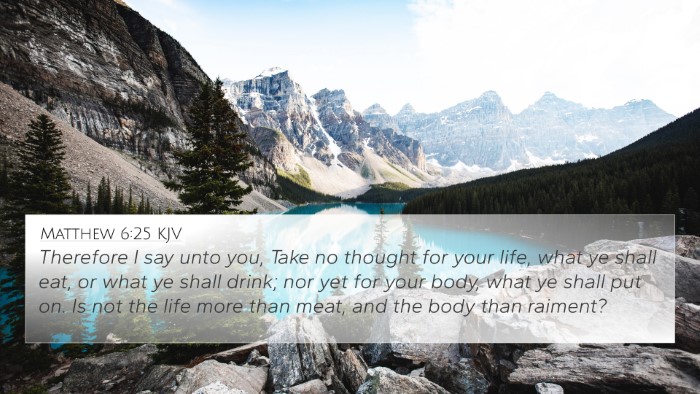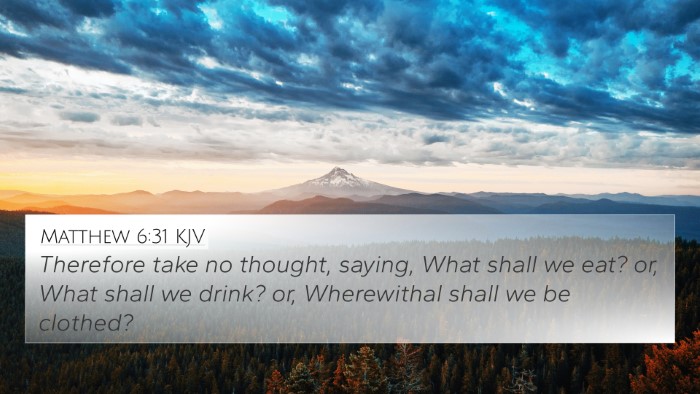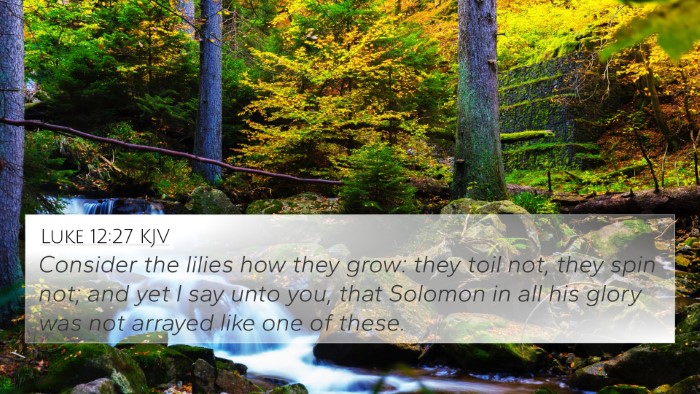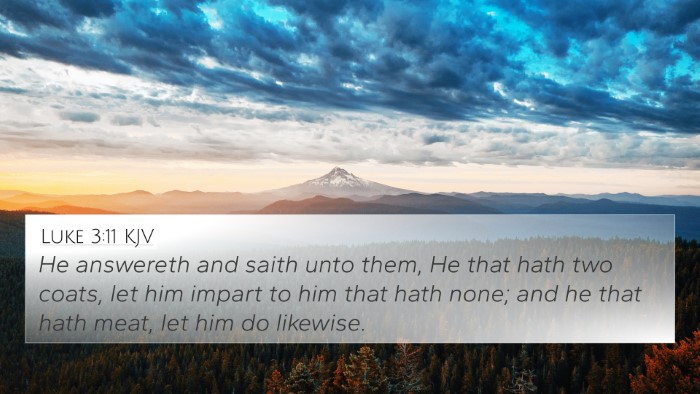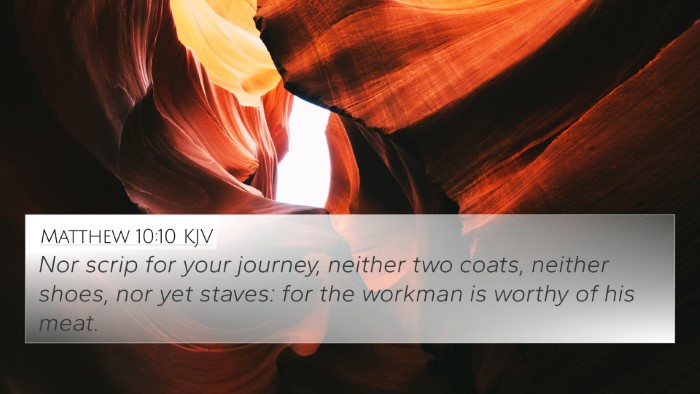Understanding Matthew 6:28
Matthew 6:28 states: "And why take ye thought for raiment? Consider the lilies of the field, how they grow; they toil not, neither do they spin." This verse invites believers to meditate on the natural provision of God, using the example of the lilies in the field to illustrate the theme of divine care and provision.
Summarized Meaning and Insights
This passage from the Sermon on the Mount highlights several key themes:
- Divine Provision: The verse emphasizes God's ability and willingness to provide for the needs of His creation without the anxiety often associated with earthly concerns.
- Nature as a Teacher: By instructing His listeners to consider the lilies, Jesus underscores the beauty and care evident in nature, which reflects God's glory and provision.
- Trust over Worry: The focus shifts away from worrying about material needs, encouraging a reliance on God's promises.
Commentary Insights
Combining insights from notable public domain commentaries:
- Matthew Henry: He points out that the stress and labor of life can lead to excessive worry, which distracts from faith and trust in God’s promise to provide. He encourages believers to learn from nature's simplicity and God's provision.
- Albert Barnes: Barnes elaborates on the idea that the lilies showcase a point of contrast between nature, which relies wholly on God, and humans, who often fret about their worldly needs. He further notes the significance of God's care for his creation, suggesting that if God provides for the lilies, He will certainly provide for His people.
- Adam Clarke: Clarke emphasizes the metaphorical connection between the growth of lilies and spiritual growth. He invites readers to reflect on their own spiritual state, paralleling the care of God for the flowers with His care for the soul.
Bible Verse Cross-References
This passage connects with several other scriptures that reinforce its themes and messages:
- Luke 12:27-28 - "Consider the lilies, how they grow: they toil not, they spin not; and yet I say unto you, that Solomon in all his glory was not arrayed like one of these."
- Philippians 4:19 - "But my God shall supply all your need according to his riches in glory by Christ Jesus."
- 1 Peter 5:7 - "Casting all your care upon him; for he careth for you."
- Psalm 104:24-25 - "O Lord, how manifold are thy works! In wisdom hast thou made them all: the earth is full of thy riches."
- Romans 8:32 - "He that spared not his own Son, but delivered him up for us all, how shall he not with him also freely give us all things?"
- Matthew 6:26 - "Behold the fowls of the air: for they sow not, neither do they reap, nor gather into barns; yet your heavenly Father feedeth them. Are ye not much better than they?"
- Isaiah 40:30-31 - "Even the youths shall faint and be weary, and the young men shall utterly fall: but they that wait upon the Lord shall renew their strength; they shall mount up with wings as eagles."
Connections between Bible Verses
The connections between Matthew 6:28 and these other verses highlight the consistent theme across scripture regarding God's providence and care. The verse forms part of a larger dialogue within the Bible about reliance on God rather than on material possessions.
Comparative Bible Verse Analysis
In comparing Matthew 6:28 with the referenced verses, we find:
- Both Matthew 6:26 and Luke 12:27-28 reiterate the lessons learned from observing God's care for nature, enhancing the theme of divine providence.
- Philippians 4:19 complements the idea in Matthew 6:28 by assuring believers that God will supply their needs as He does for the lilies.
- Clarity on the relationship of faith and peace is echoed in 1 Peter 5:7, encouraging believers to rely on God's care.
Thematic Bible Verse Connections
Exploration of Matthew 6:28 leads us to broader themes encompassed in scripture, such as:
- Trust in God: A recurring theme in both the Old and New Testaments.
- God’s Sovereignty: Reflected in His care for creation and His attentive providence.
- Contentment: Encourages believers to seek spiritual fulfillment rather than material wealth.
Inter-Biblical Dialogue
The dialogue between different parts of the Bible enriches understanding. For example:
- Old Testament Provisions: References to God's provision in Psalms and Prophets serve as a foundation for New Testament teachings on trust and reliance on God's care.
- New Testament Affirmations: Teachings from the Apostles consistently affirm the Old Testament's view of God's unwavering care for His people.
Bible Study Tools for Cross-Referencing
For those wishing to study Matthew 6:28 and its connections further, utilizing tools like:
- Bible Concordance: Helps in locating passages by themes or keywords.
- Cross-Reference Bible Study Guides: They facilitate a deeper understanding of interconnected scripture.
- Comprehensive Bible Cross-Reference Materials: These resources can aid in exploring the thematic connections between verses.
Conclusion
In summary, Matthew 6:28 serves as a profound reminder of God's provision and care. Through the study of this and related verses, believers can cultivate a deeper reliance on God, drawing strength and assurance from His promises.
